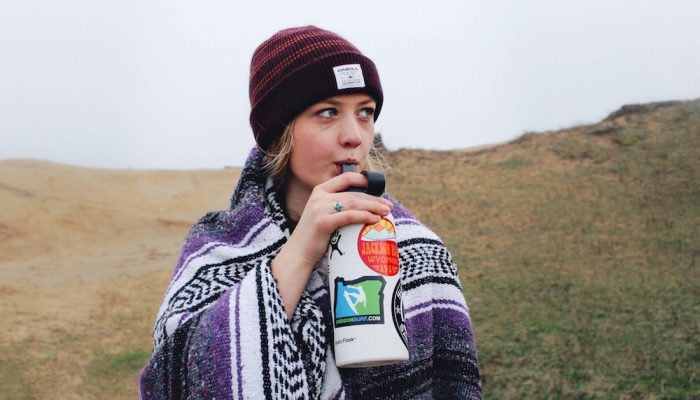We humans are an interesting species.
We would wish to live in a pristine environment, breathe fresh air, drink clean water, swim in crystal-clear oceans, and enjoy stunningly beautiful biodiversity.
The problem is we also wish to do whatever we want. Bad news is, we can’t have it all.
Even if we are cognisant of the fact that our daily actions negatively contribute to the environmental crisis, many of us are reluctant to change our behaviours, or adjust them only temporarily, failing to sustain them in the long run.
But why?
It may be the lack of belief that an individual’s contribution will change anything, thinking it is just a drop in the ocean. Seeing the extent and gravity to which many things on the planet are deteriorating, the temptation to fall into despair and turn a blind eye to what is going on is understandable.
Some may not see the bigger picture, the connections between different phenomena, and how everything in the world is inherently interlinked. Others do not know what they could do and how, or do not realise the far-reaching consequences of their actions. And there are those who do not care and don’t even consider changing their ways. Happy in their bubble.
On the other side, there are also the Humans, with an article and capital H, who are ceaselessly searching for new ways to do more. I treasure and admire you. Shall your energy and enthusiasm never fade, so you can be an endless inspiration and example for others.
For sure, our governments and big industries can have a much more systemic, structured, and large-scale impact than individuals. Well-intended activism campaigns promoting plastic straw and single-use coffee cup bans are just scratching the surface compared to, let’s say, imposing a carbon tax.
But let’s not underestimate the impact of our individual consumer choices. Because what we consume and how is in our hands. Offer is driven by our demand. Changes from the top may be triggered by our push from the bottom.
And don’t despair if you can’t afford an electric car (or for that matter, to live without one), or to cover your roof with solar panels. Not being able to make the grand changes doesn’t mean there aren’t other options to consider when thinking about lowering our environmental footprint.
Each of us has the power to contribute to making this world better. And it’s really more about how we live, rather than what we do. And the beauty is that it almost always leads to positive outcomes in our life, too.
1) Quality over quantity
Our homes are often cluttered by stuff. Wardrobe items, kitchen utensils, electronic gadgets, kids’ toys, or beauty products—there is simply too much. A lot of it soon ends up in the garbage and landfills, because it is so easily substituted by another and another item. We live in consumption-driven times, and with endless stimuli nonstop encouraging us to buy more, newer, and better, it became the norm. Our cluttered households eventually mean a cluttered planet.
The overwhelmingly tempting selection, allowing us to get practically anything, from anywhere and anytime, clouds our judgement.
Whatever drives our shopping patterns and, whatever we call it—desire, compulsion, compensation, mechanised thinking (or lack thereof)—if we bring in more consciousness about what we buy and where we buy it from, if we stop mistaking our fancies for needs and start asking ourselves more, Is this really necessary in my life?, it will benefit us, our local communities, and our planet.
Giving favour to local brands, local farmers, and local producers, we reduce greenhouse gasses by minimizing transport and strengthen our communities. We can go for natural materials like linen, wool, and organic cotton, which are fully biodegradable.
Avoid seemingly cheaper fast fashion often manufactured under poor working conditions using second-grade materials and methods harshly impacting the environment. Consider swapping, borrowing, or buying second-hand, before buying new. When we can, go for seasonal and organic, support family farms and small grocery shops, and avoid big supermarkets. Buy less and get the really good stuff.
Whether it’s clothes, food, or any other products and services, we can support responsible companies that use business as a force for good, knowing that our money goes toward a positive change.
We can use our purchasing power to choose a better, fairer, and healthier world for everyone—us as the consumer, the producer, the seller, and our Earth providing the resources making all of it possible. Buying only what we need and genuinely falling in love with it saves us money in the long run, reduces waste, and lowers our environmental footprint. It also makes us think about what is really important in life.
2) Less (or no) meat
Despite the controversies and differing opinions, as what we eat seems to be regarded as a personal choice, it may be about time to stop bickering.
The fact is that our planet is struggling and it is not going to get better. No one is going to solve this for us.
We got ourselves into this. And if we want to contribute to making it better, one of the high-impact things we can do as an individual is to rethink our meat-eating habits.
Consuming less meat was even identified as one of the mitigation strategies to address global warming by 74 scientists from 40 countries of the UN’s Intergovernmental Panel on Climate Change. That sounds like many smart people knowing what they are talking about.
We now know there is a connection between the food’s health impacts and its environmental impacts. This means the healthier we eat, the less we burden our Earth.
If you are not up for quitting meat fully, try making it more special, consider it a treat. Think about where it’s coming from. Or try replacing (part of) your beef and pork with poultry, which is less demanding in water, land, and feed, and produces fewer greenhouse gasses, and play around the idea of a flexitarian diet.
Whatever positive adjustments you decide to undertake with your meat-eating habits, rest assured you are doing the world, our biodiversity, and your body a huge favour.
It does sound daunting to put a link between our weekend barbecues with juicy steaks and the climate crisis. But it is more than clear now. If our diets don’t change, our planet will.
3) Do it green
Everything that goes down the drain from our household ends up in sewage or wastewater treatment systems, and, depending on their standard (or presence), also in our soil and waterways. If the idea of breathing in particles of anything you spray or apply in your house is not enough, aside from influencing indoor air quality, synthetic compounds are also released into the atmosphere where they react with other chemicals producing harmful ozone, contributing to air pollution.
So, we may wash our house, body, dishes, clothes, and dogs with products containing chemicals. Or without. Not being able to avoid our exposure to countless toxic pollutants outdoors, why not at least try minimising them where we can?
Three natural, simple, and cheap remedies are enough to clean our entire home: baking soda, vinegar, and lemon. Easily bought in bulk, packaging-free, or in paper/glass. We really do not need five separate, chemical-filled plastic containers for floors, furniture, toilet, tiles, and windows.
Smelly and dirty dogs? The combination of vinegar-water-bowl-cloth is just perfect; no need for showers and shampoos every time. Soap and shampoo bars made from natural, local ingredients are a great option for the body and a good way to avoid plastic containers. Check out the wide selection of certified eco-label products for dishes and clothes. See if you can find them packaging-free and have them tapped in your own containers. If not, buying them in bulk also reduces waste and resources.
Ecological, natural products are better for us and the planet in the process of their production, use, and disposal.
4) Minimise packaging
I honestly don’t know why, in the 21st century, rice, pasta, oats, or nuts still mainly come in small, single-use plastic packaging, when transportation, storage, and sale can be all done in a much more efficient and environmentally friendly manner. If someone wants to sell me bananas or apples wrapped in plastic, I feel like fighting them with my travel chopsticks.
Packaging-free options aren’t the zero-wasters’ revolt and shouldn’t be a matter of choice, but an absolute necessity.
It would be far more effective for governments to introduce the plastic tax or other forms of systemic leverages and for producers, wholesalers, and retailers to adopt more sustainable practices, but we, the consumers, can make wiser choices as well.
Even if supermarkets still freely give out plastic single-use bags for every purchase, or charge a low, hardly noticeable price, this doesn’t mean we have to take it. A lot of unnecessary packaging can be avoided on our end. A pineapple does not need to go into the thin plastic bag; six lemons don’t need to go into the thin plastic bag. Neither do carrots. Either take them loose, or bring your own reusable bags.
I believe zero-waste shops are our future and that they have great potential in today’s broken food system. My little country is an example. You can also check for a packaging-free aisle in your local grocery store. But even without these options, we can also ditch a big part of the single-use packaging in conventional stores.
Buying groceries is something most of us will have to do for the rest of our lives, so doesn’t it make sense to establish habits that are less damaging to our environment?







Read 2 comments and reply